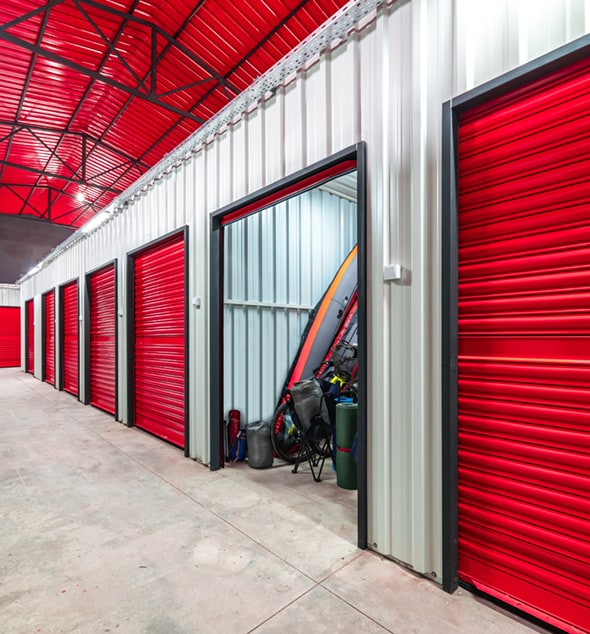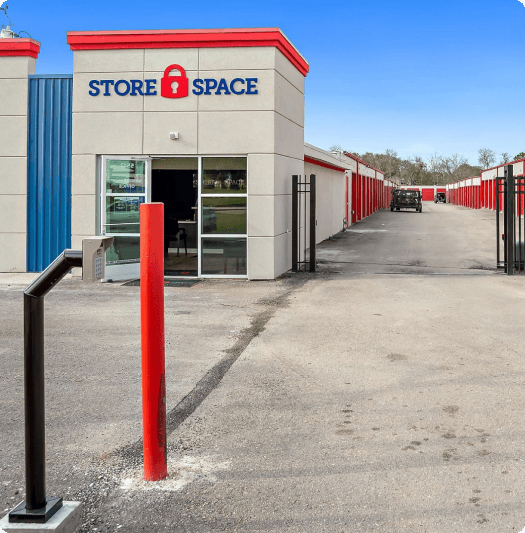What Happens If You Get Evicted? 4 Important Things To Know About the Eviction Process

Before we answer the question of what happens if you get evicted, here's our first piece of advice: Don't panic!
- First, you're not going to be forced out of your apartment right away. Eviction is a legal action and, as such, takes time to resolve.
- Second, there are some things you can do before a notice becomes a court date.
- Third, even if the eviction lawsuit ends up in court, you still have options to explore.
- Finally, don't be defeated. Ask for help if the situation warrants it.
We'll take a look at those points below, but it's also important to know your state's eviction laws.
What's that Posted on My Door?
You see something taped to your door and the first thought is it's some sort of solicitation. As you get closer, you see exactly what it is: an eviction notice.
Your heart skips a beat. Your vision narrows to the point where you can only see the paper in front of you, but you can't really read or comprehend it. Anxiety levels spike as panic fills your head. Then confusion, anger, frustration, all vie for your brain's attention.
It happened to me. Right after college, I was living in a tourist town, making minimum wage and staying in a low-rent apartment complex.
I really had no idea what I was supposed to do, since I thought my entire world was being turned upside down. I couldn't Google "What happens if you get evicted?" since Google was still a decade away from being founded.
After a time, I was calmed down enough to go talk to the property manager.
"Oh, I gotta do that if you don't pay your rent on time," he said nonchalantly. "Just get me a check and you'll be fine."
You've Got Time to Settle Your Debt
Each state's eviction laws can be different, but one thing is the same. If you don't pay your rent in full by the due date, your landlord can start the eviction process, no matter how much you owe.
Typically, once you've received an eviction notice, you have a certain period of time to settle the balance due with your landlord. The standard is usually one to two months but can be anywhere from a few days or much longer depending on where you live.
In my case, I was certain I'd paid. This was the days before the internet or cellphones, so I couldn't just go look at a banking or payment app. I ran back to my apartment and pored through my bank statements. After a few minutes, of digging, I found the canceled check.
The Court Order
If your rent isn't paid in full by the date in the eviction notice, your landlord's next step involves getting a court order.
Your landlord has the right to do this—you can't stop him/her. Once the eviction lawsuit is filed, you must go to court to get the eviction order set aside.
The court has many different factors to consider when weighing your case. This is not an exhaustive list, just a few of the examples we found online:
Have you tried to set up a payment plan? If you're getting back on your feet and willing to make payments over time to fulfill your agreement, this might be one course of action, provided your landlord is amenable to this arrangement.
Did your landlord reject your payment? If you suspect the landlord is attempting to get you out (so they can rent the unit at a higher rate, for example), then the court might rule in your favor.
Is the rental unit being properly maintained? Your landlord is responsible for ensuring the unit is kept up to par, with basics like heat and water.
I didn't have to go to court, but if it had gotten that far, I would have been able to show proof that I had paid my rent in full.
But what if I really hadn't paid? Money was very tight, and I watched my bank balance like a hawk. I doubt I would have been able to put a deposit—plus first and last month's rent—on a new place right away.
My initial thought was that I'd have to put most of my belongings in storage and find a friend with a couch until I could save enough to rent a new apartment.
What are some of the options you have?
Of course, you have options if your case does end up going to court.
Pay your rent
This is easier said than done in some cases, especially if money is tight or you're between jobs. You might have to sell some items or pick up a second job to earn enough to pay your balance.
If you want to stay in your current location, it's a good idea to attempt to work out a payment plan with your landlord while you're working on your cash flow situation. If you come to an agreement, just make sure to get your payment terms in writing!
Retain an attorney
As noted above, there might be things your landlord is doing that make the eviction lawsuit invalid or even violate the law. If that's the case, it's worth considering retaining an attorney.
If money is already tight, remember that some law firms offer discounted or pro bono (free) services for low-income clients.
Ask for financial help
There are a number of reasons that money might be tight. We're not here to judge.
If your situation gets to the point where you might lose the safety and security of your home, it might be time to swallow one's pride and look for assistance from family, friends, or even charitable organizations.
There are multiple organizations that offer assistance and, in some cases, can provide emergency rental funds, as well as other programs that can help locate government assistance programs. Start with the online resource Rent Assistance.
Some of these programs can also teach about money management skills, while others might offer job placement training.
For me, it worked out OK since I had the canceled check in hand. I showed it to the property manager, who admitted he "forgot," and the eviction never ended up going to court. But that isn't always true for millions of people who are having trouble making ends meet.
What if you lose the case?
Even if you get a lawyer who's convinced that you have a slam-dunk case, there's always a chance the judge won't rule in your favor.
If you lose your court case, you may have to move within just a few days. If you don't move out, the landlord can involve the local police.
Prepare ahead of time by locating nearby shelters or asking which friends or family would be willing to take you in for a short time. It's also important to have a place to keep your possessions.
Remember, there are charitable organizations that can help you and your family in emergency situations. Don't be shy about reaching out for help.
It may make a difference in having a roof over your head.
What's Next?
While none of us want to think about having to move out, it happens. If you relocate into a different apartment and have to downsize or you opt to stay with friends or family for a short period of time, a self-storage unit can be useful during life's tough transition.
At Store Space, we strive to give you the best self-storage experience possible. Use our store location finder to locate the storage facility nearest you.







